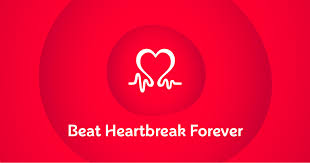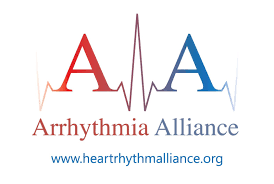
Healthy and happy?
What are you doing to look after your heart?
Here are 5 ways to improve your heart health by making some simple adjustments to your daily habits and behaviours.
Each year there are many national and global heart-related awareness days, (links below).
Each awareness day is an opportunity to check and test what you could be doing differently to help improve your heart health. As with all awareness days, it is important to raise awareness, however, it is important to put measures in place so that we can be consistent with our awareness all year around.
We invest a lot of time and energy working towards our future, however, the cold hard facts are that if we don’t look after our physical and mental health, we may not be well enough to enjoy the benefits of our years of hard work.
None of this will be news to you.
This information is out there, we all know what we need to be doing to look after ourselves, what we are often failing to do, is prioritise the time and energy to look after ourselves, and be consistent in how we make this a priority even when life gets busy.
Are you making it a priority?
These 5 areas are all ways we can make small adjustments to our daily habits and behaviours that can significantly impact our heart health.
Where could you challenge yourself to make some changes?
What positive impact could you create in these areas?
Food & Drink
Nutrition is key to our physical and mental health.
The topic of nutrition and what we eat and drink is often centred around 'weight loss' however our heart health is often determined by 'what' we eat and drink, not just the quantity.
What does your food and water intake look like?
Are you eating the right fuel for your activity levels?
Quality and quantity are the key elements here. Put the right food and water in, in the right amount, and you will be running like a high-performing car engine.
Every week the media release a new ‘eat this not that’ article or programme. New research is released that often seems to be counterintuitive or argues against the last piece of research that came out.
Unless nutrition interests you, keep it simple. 80% of what your body needs, 20% of what you want.
Focus on keeping the majority of your intake as nutrient-dense foods that contain the vitamins and minerals that your body needs to function. Top that up with a little of what you enjoy and what you fancy.
Find the balance that works for you.
Find the foods that work best for you.
Focus on what your body needs.
Quantity of food and drink is also important. Adjust your intake to match the energy you require.
Slow day and not much energy going out = less food in.
Busy day and lots of energy needed = more food in.
Keep hydrated! Using the same 80-20% rule, aim to keep the majority of your intake as water, and top it up with your choices of drinks, tea, coffee, squash, and alcohol.
Physical Activity
Many of us have sedentary jobs, lots of sitting down, and very little NEAT (Non-exercise activity thermogenesis is the energy expended for everything we do that is not sleeping, eating or sports-like exercise).
This means we have to find alternative ways to increase our activity levels.
Physical activity does not have to mean extreme gym sessions.
Find an activity that works for you. Something that fits in with your routine and your lifestyle, something that you enjoy doing and look forward to. Something that is appropriate for your current level of fitness that you can then build on.
Don’t worry about what everyone else is doing, or the latest fitness craze. If you enjoy walking then go for a walk, if you like to run do that, if you want to get back into playing hockey, football, rugby or basketball, then find a local club and get involved, you might even want to check out the walking team sports that are held locally if the full running around version feels like too much too soon.
Anything that gets you moving, and gets your heart rate up.
20 minutes, 5 times a week is recommended by the NHS. Where possible add in some strength activity to help retain muscle tissue, body fat and bone mass. Combining both forms of activity has proven to reduce heart disease.
You will feel better for it, not just physically but mentally too.
Sleep
When we sleep our bodies are going through a very important process that cannot be replicated in anything else that we do.
Studies show short sleep duration or poor sleep quality, is associated with high blood pressure, elevated cholesterol and atherosclerosis (fatty build-up in your arteries) and habitual short sleep increases the chance of cardiovascular events.
Even the clocks changing and the impact on our sleep can have a significant impact:
A 2019 report found a higher risk of heart attack after both time changes, but particularly during daylight saving. Interruptions to circadian rhythm can also impair focus and judgment. A 2020 study found fatal traffic accidents increased by 6% in the United States during daylight saving time.
~ Source WebMD
Sleep is important.
Create an evening routine that helps you to wind down before you get into bed.
Not everything has to be done, some things can wait until tomorrow.
Slow down, wind down and when you climb into bed be consistent with your routine so that your brain and body know it is time to switch off and sleep.
There is a lot of information out there to help you improve your sleep hygiene. If you are having trouble with either the quality of quantity of sleep then why not try one of these top 5 tips to improve your sleep:
1. Stick to a sleep schedule. Go to bed and wake up at the same time each day. Become a creature of habit. Set an alarm for bedtime.
2. Avoid caffeine and nicotine. Effects can take up to 8hrs to wear off. Withdrawal can affect how long you sleep.
3. Avoid alcohol before bed. It may help you to relax however it impacts REM sleep and the quality of sleep as the effects wear off.
4. Relax before bed. Leave time to unwind an hour before you are scheduled to sleep. (set an alarm / use the Do Not Disturb button)
5. Get your sunlight exposure during the day. Daylight helps regulate sleep patterns. Aim for 30-60 minutes of natural sunlight. If possible wake up with the sun and open the curtains.
You can read more on this blog.
Stress
How are you managing your stress levels?
Do you have ways to help you keep the stress bucket empty and coping strategies to deal with the challenges life throws our way?
It is important to prioritise time in each day, and week to help reduce our stress levels.
This doesn’t need to be anything complex, a bath, a book, music, a walk, a phone call to a friend, or a favourite TV episode.
What works for you? What helps you switch off?
Check who you surround yourself with and who you allow into your headspace, either in reality or virtually. Filter out the negativity as much as possible.
Being conscious and taking notice of what drains us, and what energises us is incredibly important. Increase your awareness of who and what has a positive or negative impact.
Where possible remove or reduce the elements that drain you, and increase the things that energise you.
When your mental, physical and emotional battery starts to get low, take action, do what you need to do to recharge, and don't let it run down to the point that you shut down.
Fulfilment
Is your heart full?
Are you fulfilled?
The definition of fulfilment is:
The achievement of something desired promised or predicted. Satisfaction or happiness as a result of fully developing one's potential.
Are you working towards fulfilment? What do you fill your heart with?
Life is more than just surviving.
We need to look after our hearts physically, however, our emotional health is just as important.
The two are connected and it is important that physical, mental and emotional well-being is a priority.
Where could you challenge yourself to make some changes?
What positive impact could you create in these areas?
If you need some extra advice and support in any of these areas then why not book a no-obligation, free clarity call to see how Phoenix coaching services can support you?
***
Heart Awareness Links, please take a look:
First published June 2018
Updated and republished Sept 2020&2022



